#debtfree budget
Text
The Power of Budgeting: Your Key to Getting Ahead
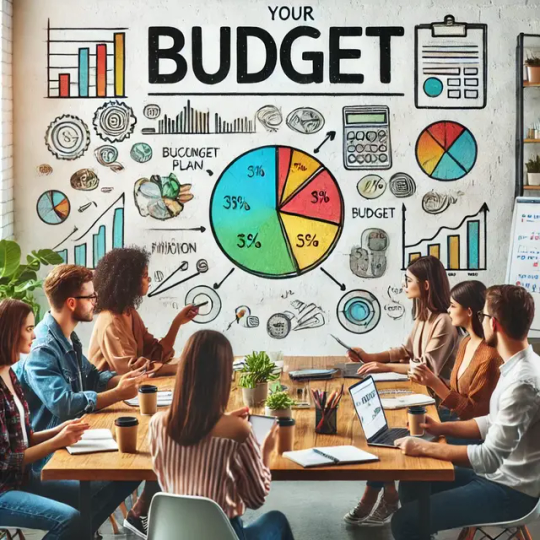
In today's uncertain economic climate, one principle remains steadfast: the importance of a good budget. Far from being restrictive, budgeting is the cornerstone of financial freedom and success. Let's explore why a solid budget is essential and how it can set you on the path to getting ahead.
The Foundation of Financial Health
Imagine your finances as a garden. Without proper planning, weeds can quickly overrun it. A good budget is like a well-thought-out garden plan, ensuring every financial decision supports your long-term goals.
A budget provides a clear picture of your financial situation. According to a 2021 survey by Debt.com, 80% of people who budget say it helps them get out of debt or stay out of debt. This clarity allows you to identify unnecessary expenses and redirect funds towards more meaningful goals.
Empowerment Through Control
Budgeting isn't about restriction; it's about taking control of your financial destiny. It breaks the stressful cycle of living paycheck to paycheck.
Take Sarah, for example. She was always stressed about her finances until she created a budget. She discovered she had been spending $500 monthly on takeout and impulse buys. By reallocating those funds, she built an emergency fund and started saving for a house down payment.
The Path to Savings and Investment
A good budget makes saving achievable by breaking it down into manageable steps. The "50/30/20 rule" is a popular budgeting technique: allocate 50% of your income to needs, 30% to wants, and 20% to savings and debt repayment.
James, a young professional, started budgeting in his mid-20s using this rule. By consistently saving and investing 20% of his income, he built a robust investment portfolio by his 40s, providing financial security and freedom to pursue his passions.
Reducing Stress and Increasing Peace of Mind
Financial stress can take a heavy toll on your health. A study by the American Psychological Association found that 72% of Americans feel stressed about money at least some of the time. A good budget acts as a safety net, providing peace of mind and reducing anxiety.
Emily, a single mother of two, experienced this firsthand. After creating a budget, she felt a huge weight lift off her shoulders, knowing she had a plan to cover expenses and save for her children's education.
Building Discipline and Financial Habits
Budgeting teaches discipline that can extend beyond finances. Mark, a young entrepreneur, found that budgeting improved his business practices. By applying budgeting principles to his business, he cut costs by 15%, increased profitability, and reinvested in growth opportunities.
Achieving Your Financial Goals
A good budget transforms dreams into achievable goals. Whether you want to pay off debt, save for a home, or retire early, a budget provides the roadmap.
The SMART goal-setting technique (Specific, Measurable, Achievable, Relevant, Time-bound) can be particularly effective when budgeting. For instance, instead of "save more," set a goal like "save $5,000 for a vacation in 12 months."
Overcoming Common Budgeting Challenges
While budgeting offers numerous benefits, it's not without challenges. Here are some common obstacles and how to overcome them:
Inconsistent Income: If your income varies, budget based on your lowest-earning month and save extra during better months.
Unexpected Expenses: Build an emergency fund into your budget to cover unforeseen costs.
Lack of Motivation: Set small, achievable milestones and reward yourself for meeting them.
Budgeting Fatigue: Use budgeting apps or tools to simplify the process and make it more engaging.
Conclusion
Having a good budget is not just a financial strategy; it's a fundamental step towards getting ahead in life. It equips you with the knowledge, control, and discipline needed to navigate the complexities of the financial landscape. Remember, budgeting isn't about depriving yourself; it's about empowerment. It ensures every dollar you earn works towards your future.
A study by The Penny Hoarder found that 65% of people who maintain a budget consider themselves "very financially secure," compared to only 13% of those who don't budget.
Start today with a simple budget. Track your income and expenses for a month, then set realistic goals. Use tools like spreadsheets or budgeting apps to make the process easier. With time and consistency, you'll see how a simple budget can transform your financial reality and help you get ahead.
Your financial success begins with this single step. Are you ready to take control of your financial future? Download a budgeting app or set up a simple spreadsheet today and start your journey to financial freedom.
Take Action Towards Financial Independence
If this article has sparked your interest in the transformative potential of Bitcoin, there's so much more to explore! Dive deeper into the world of financial independence and revolutionize your understanding of money by following my blog and subscribing to my YouTube channel.
🌐 Blog: Unplugged Financial Blog Stay updated with insightful articles, detailed analyses, and practical advice on navigating the evolving financial landscape. Learn about the history of money, the flaws in our current financial systems, and how Bitcoin can offer a path to a more secure and independent financial future.
📺 YouTube Channel: Unplugged Financial Subscribe to our YouTube channel for engaging video content that breaks down complex financial topics into easy-to-understand segments. From in-depth discussions on monetary policies to the latest trends in cryptocurrency, our videos will equip you with the knowledge you need to make informed financial decisions.
👍 Like, subscribe, and hit the notification bell to stay updated with our latest content. Whether you're a seasoned investor, a curious newcomer, or someone concerned about the future of your financial health, our community is here to support you on your journey to financial independence.
#Budgeting#FinancialPlanning#MoneyManagement#PersonalFinance#FinancialFreedom#BudgetTips#SaveMoney#Investing#FinancialHealth#DebtFree#SmartMoney#FinancialGoals#MoneyMatters#EconomicWellness#FinancialSuccess#financial education#digitalcurrency#blockchain#finance#cryptocurrency#financial experts#financial empowerment#globaleconomy#bitcoin#unplugged financial
3 notes
·
View notes
Text
How to Save Money with a Tight Budget!!!
Wallet feeling lighter than a feather? Don't worry, fam! We're all about saving smart, not living like a broke student (again). Share your budgeting hacks, score deals like a pro, and ditch sneaky spending habits in the comments! Let's turn #SquadGoals into #SavingsGoals!
Saving Money Responsibly
Pay yourself first
Avoid accumulating new debt
Set reasonable savings goals
Establish a time frame for your goals
Keep a budget
Record your expenses
Double-check all payment amounts
Start saving as early as possible
Consider contributing to a retirement account
Make stock market investments cautiously
Don't get discouraged
Chopping Your Expenses
Remove luxuries from your budget
Find cheaper housing
Eat for cheap.
Reduce your energy usage.
Use cheaper forms of transportation
Have fun for cheap (or free)
Avoid expensive addictions.
Spending Money Brilliantly
Spend money on absolute essentials first
Save for an emergency fund
Pay off your debt
Put away money next
Spend on smart non-essentials
Spend on luxuries last
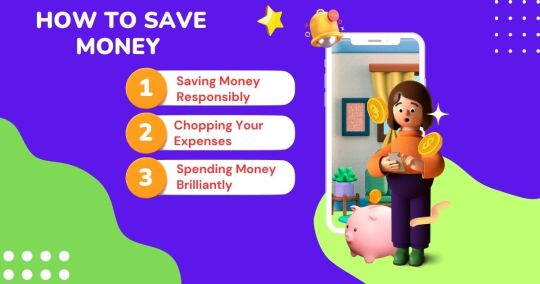
#finance#money#investing#business#economy#budgeting#debtfree#financialliteracy#financialfreedom#personalfinance#sidehustle#passiveincome#fintwit#financialgoals#millennialmoney
3 notes
·
View notes
Text
She did that
Even though it may be sad, many of us are starting to realize that student loans are not going to be paid off. Before the pandemmy I had over $16,355 in student loans. And like many others I didn’t receive a degree from the loans I took out. After talking with a neighbor and just thinking about my life. I decided to start paying them while they had no interest. I started paying off my debt in March. Keep in mind I am not a high earner (yet) and as of this day 6-15-23 I only have $6,957 left to pay off. I worked so much overtime. I didn’t buy new clothes. I don’t have a sugar daddy. I didn’t side hustle myself to death. I didn’t start a business. I didn’t scam anyone. I JUST WORKED MY 9-5. It was hard, but I will be done paying of my loans before September. I will be writing a post of how and why I decided to take this path. I may even start posting on TikTok. I want to be more open and I stepped away from this platform because I was struggling with some personal issues. Idk if anyone will read this, but if anyone does I want to just say, just start! Whether it’s student loans, taking charge of your health, making meaningful relationships. Just start you’ll mess up and when you do keep going. We’re all human, mess ups happen, and even giving up temporarily by taking breaks. But don’t don’t give up forever you got this! Till next time. Level Up on a Buck, but don’t stay stuck! >>>>> NEXT MANIFESTATION, OR MONEY GRAB?
#NextLevel#Next Level#Level Up#leveling up#level up on a buck#level up advice#debtfreejourney#debtfree#debtmanagement#personal debt#student loan#student loans#debt repayment#more money#money monday#money in the bank#make that money#money#Budget#cash#just girlboss things#bosslady#self sabotage#self love#self care#self improvement#self esteem
12 notes
·
View notes
Text
"Money is like a sixth sense - and you can't make use of the other five without it." - William Somerset Maugham
#wealth#money#financialfreedom#investing#personalfinance#entrepreneur#success#rich#budgeting#savingmoney#wealthbuilding#millionairemindset#financialplanning#debtfree#financialindependence#passiveincome#stocks#investments#moneymanagement#cashflow
3 notes
·
View notes
Text
Earn Money Without Investment: Top 10 Apps To Use In 2023 | Your Finance
youtube
#wealthbuilding#financialfreedom#investing#personalfinance#financialplanning#multipleincomestreams#debtfree#savemoney#financialgoals#financialliteracy#financialindependence#successmindset#downpayment#homeownership#savings#budgeting#realestate#homebuying#firsttimehomebuyer#mortgage#moneymanagement#dreamhome#moneyearningapps#passiveincome#workfromhome#onlinemoneymaking#makemoneyonline#top10apps#Youtube
4 notes
·
View notes
Text
How to Get Out of Debt in 5 Simple Steps

Debt can be a huge burden on your finances, your mental health, and your quality of life. It can feel overwhelming and hopeless to deal with, especially if you have multiple debts with high interest rates and fees. But don't despair, there is a way out of debt if you follow these five simple steps:
Step 1: Assess your current situation

The first step to getting out of debt is to know exactly how much you owe, to whom, and at what interest rate. You can use a spreadsheet, an app, or a pen and paper to list all your debts, including credit cards, loans, overdrafts, and any other liabilities. Write down the total balance, the minimum payment, the due date, and the annual percentage rate (APR) for each debt. This will help you see the big picture and prioritize your payments.
Step 2: Make a realistic budget

The next step is to create a budget that reflects your income and expenses. A budget is a plan for how you will spend your money each month. It will help you track your spending habits, identify areas where you can save money, and allocate funds for debt repayment. To make a realistic budget, you need to:
- Record your income: Write down how much money you earn each month from all sources, such as salary, bonuses, tips, etc.
- Record your expenses: Write down how much money you spend each month on all categories, such as rent/mortgage, utilities, food, transportation, entertainment, etc. Be honest and include everything, even the small things like coffee or snacks.
- Subtract your expenses from your income: This will give you your net income or cash flow. This is the amount of money you have left over after paying for your essential needs. Ideally, this should be a positive number that you can use to pay off your debt faster. If it is a negative number, it means you are spending more than you earn and you need to cut back on some expenses or increase your income.
Step 3: Choose a debt repayment strategy
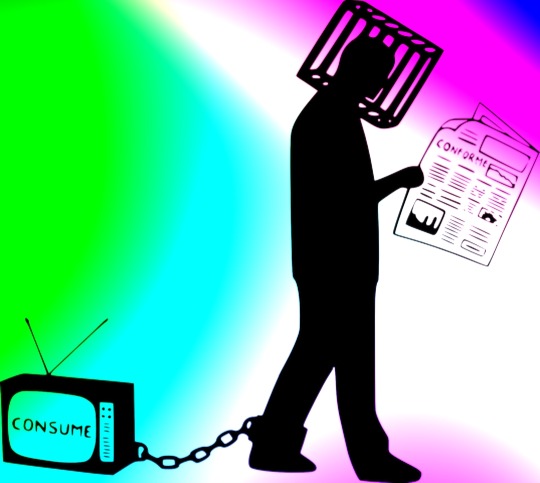
The third step is to decide how you will pay off your debt. There are two common strategies that you can use:
- The snowball method: This method involves paying off the smallest debt first while making the minimum payments on the rest. Once the smallest debt is paid off, you move on to the next smallest debt and so on until you are debt-free. This method can help you build momentum and motivation as you see your debts disappear one by one.
- The avalanche method: This method involves paying off the debt with the highest interest rate first while making the minimum payments on the rest. Once the highest interest debt is paid off, you move on to the next highest interest debt and so on until you are debt-free. This method can help you save money on interest and pay off your debt faster.
You can choose either method depending on your preference and personality. The most important thing is to stick to your plan and pay more than the minimum whenever possible.
Step 4: Negotiate with your creditors
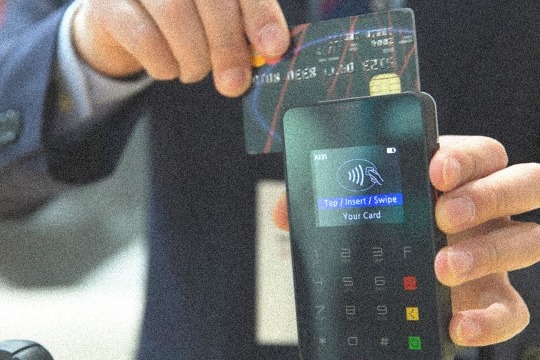
The fourth step is to try to negotiate with your creditors for better terms. You may be able to lower your interest rate, waive some fees, extend your repayment period, or settle for a lower amount. This can help you reduce your debt burden and pay it off sooner. To negotiate with your creditors, you need to:
- Contact them: Call or write to them and explain your situation and why you are struggling to pay off your debt. Be polite and respectful and ask for their help.
- Make an offer: Propose a solution that works for both of you. For example, you can ask for a lower interest rate in exchange for making larger payments or a lump sum payment in exchange for forgiving some of the balance.
- Get it in writing: If they agree to your offer, make sure you get it in writing and keep a copy for your records. This will prevent any misunderstandings or disputes later on.
Step 5: Stay focused and motivated
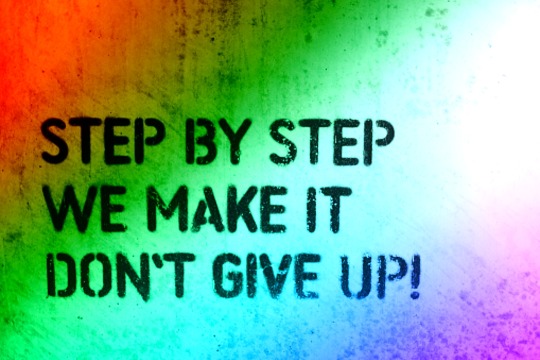
The final step is to stay focused and motivated until you are debt-free. Getting out of debt can take time and effort, but it is worth it in the long run. You will feel more confident, happier, and financially secure once you are free from debt. To stay focused and motivated, you can:
- Set small goals and celebrate your achievements: Break down your debt into manageable chunks and reward yourself when you reach a milestone. For example, you can treat yourself to a movie night or a dinner out when you pay off 10% of
#money#debt#investment#finance#financial freedom#wealth#budget#savings#credit#loans#moneymindset#debtfree#investing#personal finance#moneytips#cash#income#business#stocks#entrepreneurship#viral on internet#online#creditcounseling#crypto#crypto currency#sidehustle#forex#banking#rich#win
3 notes
·
View notes
Text
#finance#money#investing#budgeting#savings#personalfinance#financialplanning#wealthmanagement#retirementplanning#credit#debtfree#financialfreedom#stocks#investments#financialliteracy#moneymanagement#taxes#mortgages#loans#insurance#entrepreneurship#bank
3 notes
·
View notes
Text

New Post Alert ⚠️ If you are looking to improve your financial literacy, or gain a better understanding of how to manage your money, look no further.
We have scoured the market, compiled and reviewed a list of the 50 best financial books of 2023. These books cover a wide range of topics, from investing, personal finance, to self-development and money management.
If you were looking to choose a bestselling finance book for this winter, your ideal choice is most probably in this list. Happy reading ! 📖
👉🏼 TAXHVN.COM
#personalfinance#financialfreedom#finance#money#investing#financialliteracy#financialindependence#budgeting#debtfreecommunity#financialplanning#debtfree#financialeducation#debtfreejourney#wealth#financetips#business#budget#investment#entrepreneur#moneymanagement#moneytips#stockmarket#financialgoals#invest#motivation#debt#savings#moneymindset#savingmoney#success
5 notes
·
View notes
Text
Not spending money
is really really hard. Which is why I am in such a crazy amount of debt. I spent money I do not have and rationalized that that one purchase is going to make me happy. That I need that thing. Once I have that thing I'll finally be complete. But it's not true. Once I have the thing I take it for granted and I start fixating on the next thing I need.
Case in point: last month I bought an Apple watch. And now I have another charging cable. So I started looking into wireless charging stations to clean up the tangle of wires. But then I'll look at it and decide that it would look better with a prettier bedside table. Which would need a matching bookcase. And don't I need even more books? But the book is only $12 and I want to get free shipping, so I should buy two more to save the $5. And on and on and on, pick a starting line and go from there.
I keep a wishlist on google keep. So when I really want something, instead of hitting purchase on the website, I add it to the list. And then if something has been on the list for a while and I still want it, I get it.
That's how it was with the Apple watch. I probably still should not have bought it. But I rationalized that it would help me with my fitness journey. And I do actually love the watch. But my point is, sometimes I look around at my possessions and try to pinpoint the date each came into my life. The other day I realized that everything i was wearing was less than six months old. That even in this crushing debt I have still been purchasing new things like crazy. My shopping budget is blown nearly every month.
My new plan is not to eliminate shopping entirely, I don't think I could do that. But I am going to set the limit each month at $100. If I want something that is more expensive I will have to wait until I have saved enough over several months to afford it. More of a built-in buffer for impulse spending. No more walking around stores (or online stores) just to see what is there. No more thinking "it would be so nice to have a fish tank" and then researching how much they cost online. I can just think about the fish tank without purchasing one. I want to simplify my life, not add more to it. At least not in the sense of owning more items.
I want to be free. Free from debt and free from all these pointless items that I have stacked up all around me.
6 notes
·
View notes
Text
Mini Snails Saving Tracker Available in my Etsyshop printablebycara.etsy.com
#cash stuffing#savings#budget#100 cash envelope challenge#savingchallenge#sinkingfunds#debtfree#moneychallenge#lowincome#A6 Budget Binder
4 notes
·
View notes
Text
0 notes
Video
youtube
10 Things I Wish I'd Done Differently Financially at 21!
#youtube#FinancialTips MoneyManagement PersonalFinance FinancialFreedom Investing Budgeting YoungAdults FinancialAdvice DebtFree Savings WealthBuildi
1 note
·
View note
Video
youtube
Beat Inflation in 2024! Discover How It Affects Your Money I What You Ca...
#youtube#BeatInflation SmartMoney Inflation2024 FinancialTips MoneyManagement StayAhead InvestSmart DebtFree SavingsTips Budgeting WealthBuilding Fin
0 notes
Text
Struggling with debt? Here are 6 Proven Steps to Break Free and Reclaim Your Financial Freedom!
Are you feeling overwhelmed by accumulated debts? Discover how you can take control of your financial future with these essential steps. Our latest video dives deep into effective strategies to eliminate debt and build a stable financial foundation.

✨ What You'll Learn:
Assess Your Debt - Understand what you're dealing with.
Create a Budget - Plan your spending and saving.
Negotiate with Creditors - Explore ways to reduce your debt burden.
Increase Your Income - Find additional streams of revenue.
Consolidate Your Debts - Simplify your payments.
Stay Committed - Develop habits to stay on track.
Don’t let debt hold you back any longer. Watch our video and start your journey to financial freedom today!
👉 Watch Now
Don’t forget to follow our Tumblr page for more tips on personal finance, wealth-building strategies, and inspiring content that helps you achieve your financial goals!
DebtFree #FinancialFreedom #MoneyManagement #PersonalFinance #Budgeting #DebtReduction #FinancialTips
#DebtFree #FinancialFreedom #MoneyManagement #PersonalFinance #Budgeting #DebtReduction #FinancialTips
#DebtFree#FinancialFreedom#MoneyManagement#PersonalFinance#DebtReduction#Budgeting#FinancialTips#WealthBuilding#DebtHelp#FinancialAdvice#MoneyTips#DebtRelief#FinancialGoals#InvestSmart#MoneyMatters
1 note
·
View note
Link
Discover how to transform your financial future by shifting your mindset, setting clear goals, and making smart financial decisions. Learn how to budget, invest, and cut unnecessary expenses to achieve the financial freedom you deserve. Join us on 'Ignite Your Spirit' for inspiration and practical tips to live abundantly and on your terms.
#financialfreedom#wealthbuilding#moneymindset#investingtips#budgeting#financialgoals#moneymanagement#financialindependence#smartinvesting#personalfinance#debtfree#financialliteracy#wealthmindset#abundantlife#inspiration
1 note
·
View note
Text
🌟 Ready to make 2024 your best financial year ever? 🌟
Kickstart your financial planning journey with smart goals. Aim to save for emergencies, pay off debt, invest for the future, build wealth, budget wisely, increase income, and protect your assets. Consistency, discipline, and regular review are key to achieving financial success.
For more information, visit: Free Skills Hub
1 note
·
View note